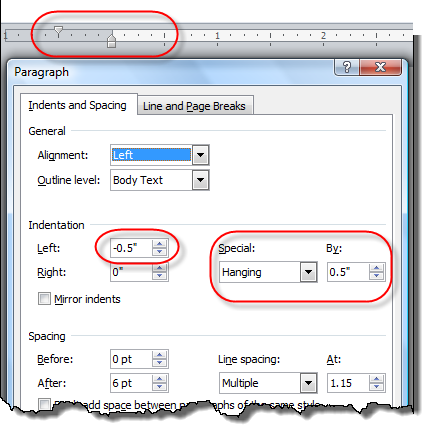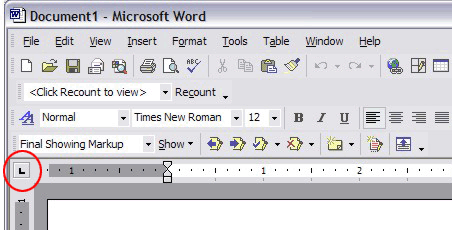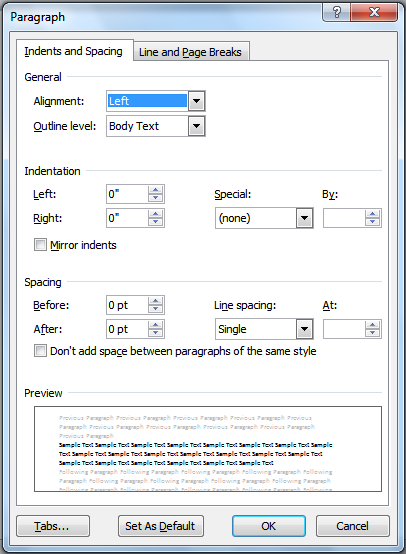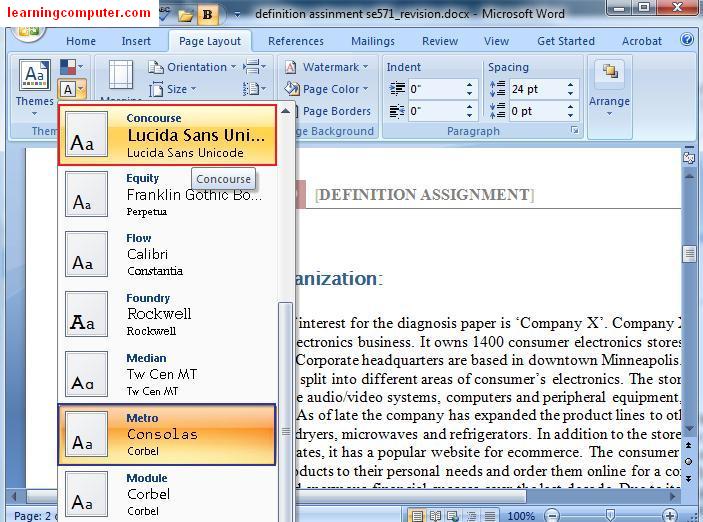

In Word 2003, choose Tab from the Format menu.
Microsoft word tab length how to#
The one thing missing from that piece is how to change the default tabs for a document. When Word's default tab stops of every half inch don't get the job done, change the default setting!Ī few months ago, I wrote a tutorial on creating and using tabs. Pick a method that works best for you and your needs, and understand that the result is, at best, approximate.How to change a Word document’s default tabs The upshot of this is you shouldn't be surprised if you get slightly different results with each method discussed. Plus, the macro-based approach seems to use a different way to count words than the other methods. The other methods don't offer that flexibility they seem to return counts that don't include the text boxes, footnotes, or endnotes. For instance, if you look back at the Word Count dialog box, you can see a check box that controls whether Word includes text boxes, footnotes, and endnotes in the statistics. There is one caveat that I should draw to your attention-it seems that Word, in each of the ways described in this tip, often returns different counts. You can, of course, assign a shortcut key to the macro or you can add it to your Quick Access Toolbar for handy access. If so, then the calculation is performed using whatever is selected if not, then the entire document is used for the calculation. Note that the macro uses the Type property of the Selection object to determine if there is a text selection at the time the macro is run. MsgBox "Average word length is " & Format(dAvg, "0.00") & " characters" This is made possible because Word, in VBA, keeps track of both characters and words in a selection.ĭAvg = / ĭAvg = / Still another approach is to use a macro to do the calculations.
Microsoft word tab length update#
When you update the field ( F9), you'll se the calculated average word length. Within the braces you can type the field names, as shown above. Note that each pair of field braces is inserted in your document by pressing Ctrl+F9. This particular approach relies on three fields: =, NUMCHARS, and NUMWORDS: If you want to put the average word length into your document, you can rely on fields to do the work for you. If you want them for only a portion of the document, select that portion before starting the spelling and grammar check. If you run the spelling and grammar check on the entire document, you get statistics for the entire document. You can see here not only the average word length, but also other averages for the text. Note that the dialog box includes an Averages section. When the check is done, Word displays the Readability Statistics dialog box.

Word does its check and prompts you, as necessary, about any changes you might want to make. With this configuration change made, go ahead and run a spelling and grammar check (press F7).

(In Word 2007 click the Office button and then click Word Options. (If you don't have the status bar configured to show a word count, you can right-click on the status bar to modify what is shown there.)Īnother approach is to enable the readability statistics for Word.
Microsoft word tab length full#
It is also interesting to note that if you have your status bar configured to show the document word count, you could also click on the number of words shown there and Word displays the full Word Count dialog box. You'll want to use the character count that doesn't include spaces, divided by the number of words. Using the information in the dialog box, you can easily calculate an average word length.

Click it, and you'll see the Word Count dialog box. For instance, on the Review tab of the ribbon there is a Word Count tool. One approach is to rely on tools already built into Word. There are a variety of ways you can go about this task. She wonders, though, if there is a way to figure out the average word length for a selection of text or for an entire document. Denise knows how to figure out the number of words in a document using the tools that Word provides.


 0 kommentar(er)
0 kommentar(er)
